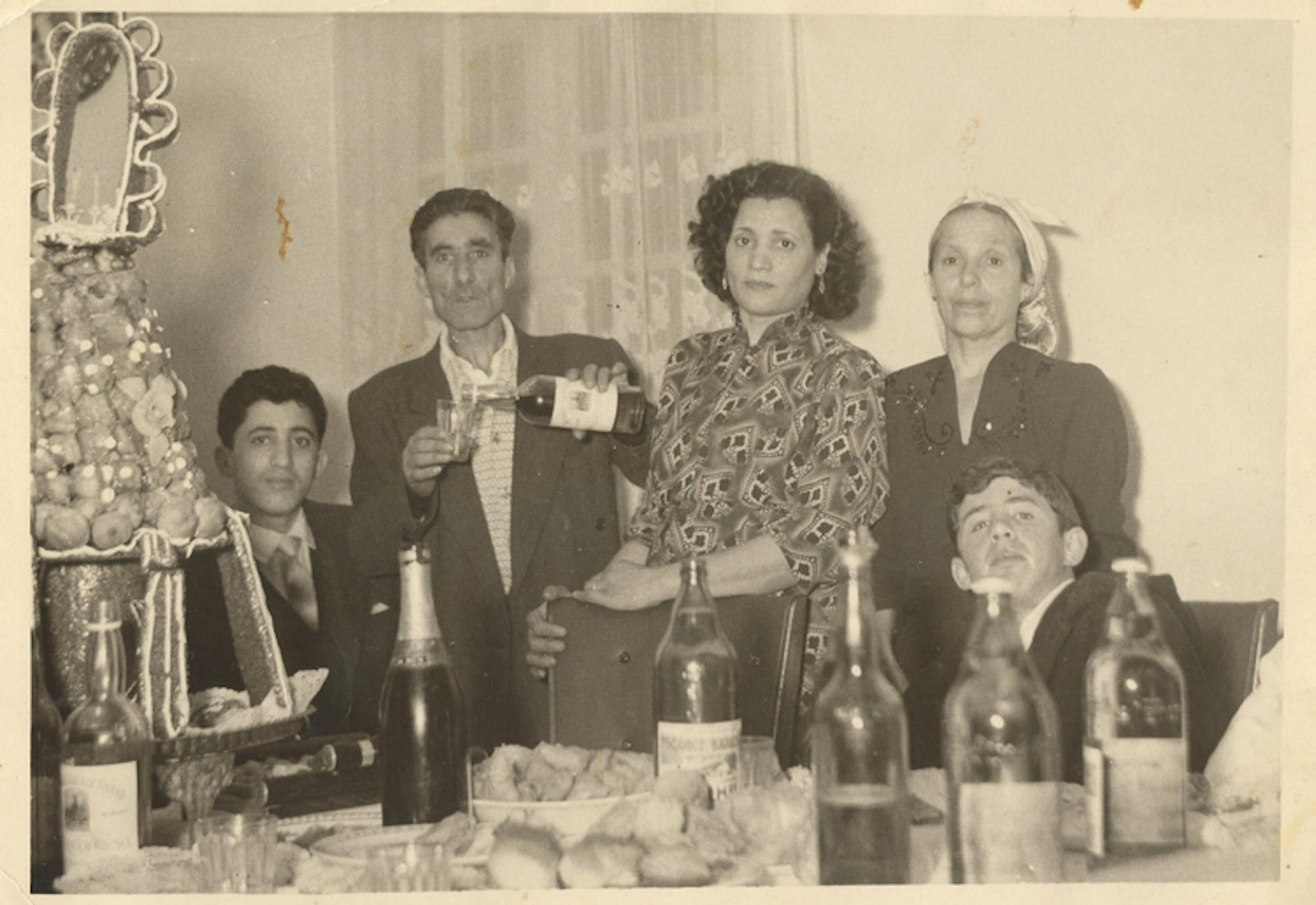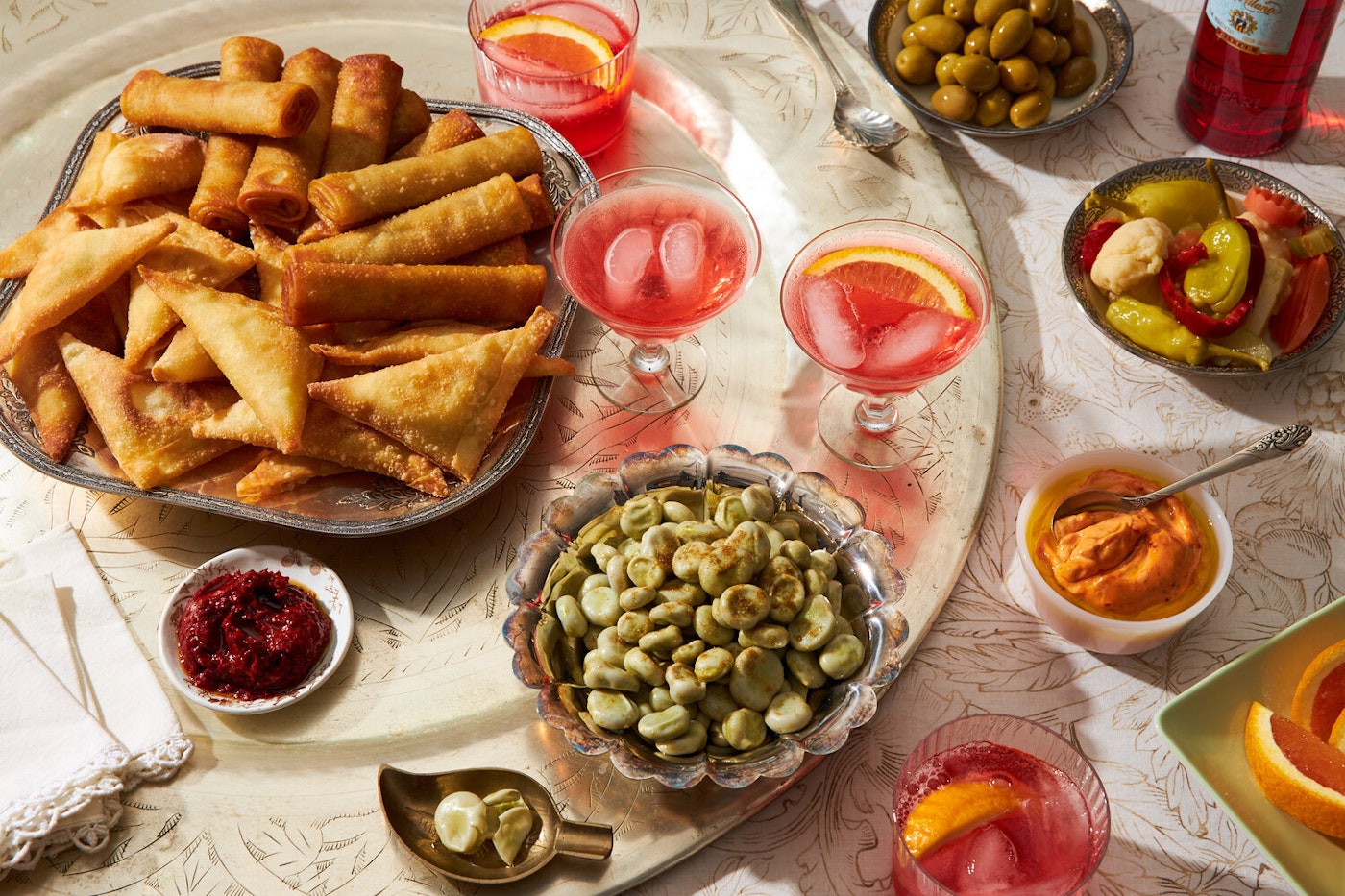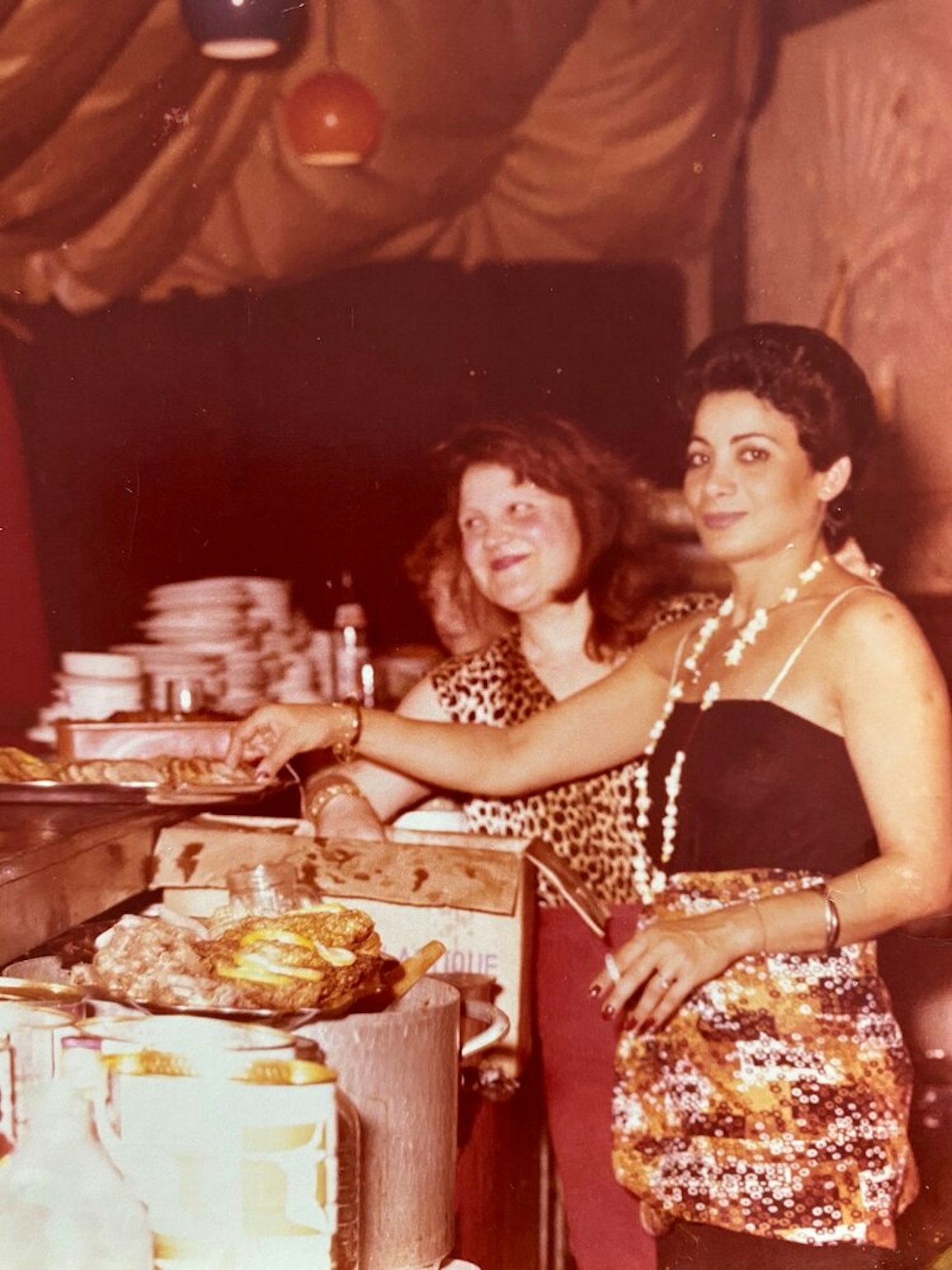Shared by Joanna Bensimon


“My mom was the queen of aperitif,” says Joanna Bensimon, owner of The Hamsa Brand, a harissa company. “Every single Friday, no matter what,” their coffee table in Queens, New York was covered with glasses of cognac, whiskey, red wine, and Campari and elegant linen napkins. To snack, there were fava beans tossed in salt and cumin, crisp and golden beef cigars with harissa, potato-filled triangles called pastels, cocktail nuts, pickles, and harissa.
With few relatives close by, the guests were often young Israelis visiting New York after their military service. “My mom’s house was always open for any person who didn’t have family in town,” explains Joanna. There was also a constellation of Tunisian siblings and their children, who welcomed Joanna and her mom Ora into their family. “No one spoke English...I didn’t know a word of English until I was five. I feel like I’m an immigrant, though I’m not,” she adds. The Friday evenings would pass in a melange of French and Hebrew, with Arabic used as language the adults hoped the children wouldn’t understand — though they did.
The family’s Friday night aperitif tradition traces back to Casablanca on Morocco’s Atlantic coast, where Ora was born in 1946, when the country was a French protectorate. “She came from a line of ‘famous’ homecooks and by famous, I mean everyone….knew about their cooking skills in the 1930's and 1940's,” explains Joanna. In 1959, the family moved to Israel and Joanna’s mother changed her name from Mesode to the Hebrew Ora as she tried to assimilate. “It was definitely a tough transition — being immigrants in this foreign land. They were well off in Morocco and had to start from scratch in Israel,” Joanna says.
Independent from a young age, she left her family at 18 to work in Netanya and moved with her boyfriend to France and then the Caribbean. When they parted, she set off for New York as a single expectant mother in 1984. Knowing only a single friend in the city, she “took the leap and made a life for herself...as a private cook and caterer,” adds Joanna. “She was basically an immigrant twice, having to learn the language again.”
In their tiny Queens apartment, Joanna would help her mother, whether it was for a catering event or the Friday night celebrations, but Ora “had total control of the kitchen — I was just the sous chef,” she explains. Still, Joanna absorbed her mother’s recipes and techniques. Every week on Wednesdays, they would pick up ingredients and push them home in an old shopping cart. The cooking started on Thursday and the meal was finished when Joanna was at school on Fridays.
When she returned, “I would pick up every single lid and see what was cooking under there.” It’s a tradition that she also inherited. Joanna was raised on stories of her mother and uncle waking up in the middle of the night in Israel and Morocco to check on the family’s dafina or Sabbath stew.
In Queens, the Shabbat menu that followed the aperitif rotated week to week but was always plentiful. There were salads made from shredded cabbage and carrots spiked with harissa. Zucchini and peppers were stuffed and there were two types of meat and rice. “Our table cloth was always white on Shabbat,” says Joanna. “But you never saw the white.”

